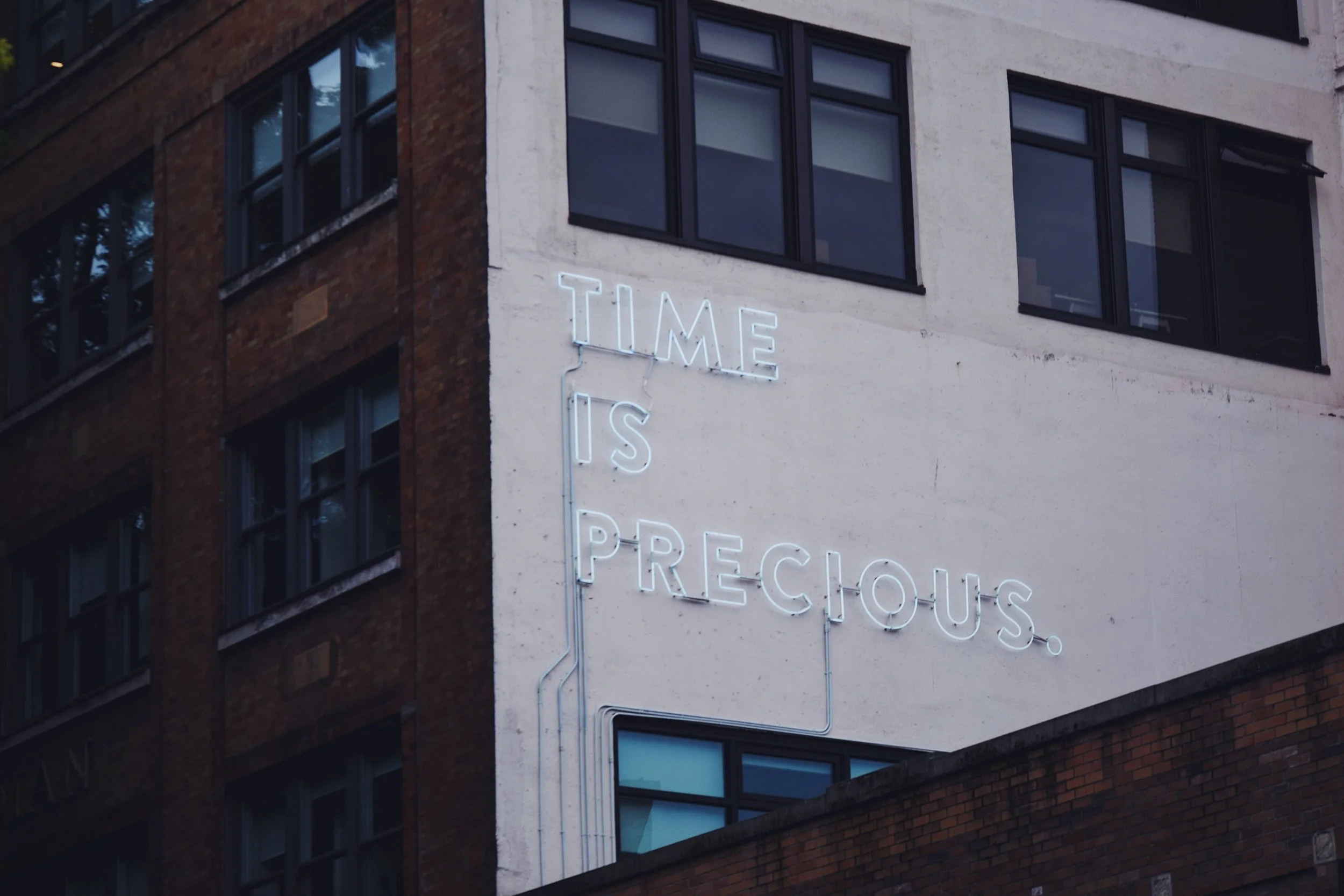Monday Hustle: 6 Ways That You Can Maximise Your Productivity Whilst Working
Ever get into the office, reply to an email, blink, have some lunch, blink again, and then it's time to head home? Where the hell did the day go? It's so easy to waste time when you're working, whether it's consciously (procrastination is a great go-to when you've got a task you'd rather avoid), or subconsciously. Yet we're all guilty of having unproductive days at work at one time or another, and it's a piece of cake (yum) to fix.
1. Apply deadlines and time limits to the work that you're doing.
Naturally, our work can often come with deadlines. Maybe it's a big project, or a presentation that you're heading up in front of your team or partners; whatever it is, when you're working on it, time is ticking. But what about the other tasks, the ones that don't have your boss breathing down your neck for? We oftentimes take advantage of the fact that there's no pressure to get these kinds of tasks finished, but is it just another opportunity to time waste? Try setting your own deadlines, that apply a bit of pressure to get the job done, but are achievable. You'll find that you become way more focused on your work when you're keeping an eye on the time. Similarly, if you have tasks that aren't conclusive (i.e. never really finish), be mindful of how much time you spend on them. It could be that you're giving them way more energy than needed.
2. Take regular breaks during tasks.
Now we're not telling you that you should be heading off to the staff kitchen for another coffee and a biscuit every time you send an email to a colleague, but taking some time out will actually help you to focus more on your workload. Research by Florida State University shows that people who work in 90 minute blasts before taking a break are more productive and more focused on their work. Who knew?
3. Utilise your time to include even the smallest of tasks.
It's really easy to put off the small, menial tasks, because you justify putting it off 'because it won't take long later'. Fun fact: it won't take long if you do it now, either. Entrepreneur Steve Olenski has frequently spoken about the 'two minute rule'. It's pretty simple, and requires only one question: can it be done in two minutes? If the answer's yes, do it now. If it's going to take more time, find an appropriate time to fit it in and get it done.
4. Remove yourself from as many distractions as possible.
This probably goes without saying, but if you're working and your colleague pops in for a chat, your phone is ringing off the hook, your Facebook is pinging, emails are popping up on your screen, and the office has the radio just that bit too loud, you're going to lose focus on your work. Shut it all out. Whether that means turning off notifications across your phone and computer (Apple offers the super useful Do Not Disturb mode), asking your colleagues to give you some peace and quiet as you work to meet a deadline, or even work away from a hectic office environment if you need total concentration, do what needs to be done. If you work in a job where emails don't require urgent attention, create a time slot in your day dedicated to answering them, and stick to those timings daily. If your work requires snappier responses, then it's a good idea to adjust accordingly. It's important to curate a workspace for yourself that doesn't get in the way of you actually doing the work itself. Just because your co-workers can get those figures done and dusted whilst singing along to Bohemian Rhapsody, replying to everyone on Facebook, checking three inboxes and organising a bridal shower, it doesn't mean you can, or have to.
5. Only go to meetings if you really need to.
Meetings are great in many ways. You get to talk face to face with people who you may not necessarily engage with on a regular basis. You get to take time away from your desk, which might refresh you from the same old scenery. You might even make great strides in your work in ways that you couldn't if said meeting hadn't happened. But there are also many ways in which meetings are counterproductive (there's a reason people dread them more than they're excited by them), and can cut up your day in a way that throws off your productivity levels with regards to other tasks. According to Atlassian, the average office worker spends over 31 hours a month in unproductive meetings. 31 hours. What a monumental waste of bloody time! A quick rectifier is to think about the meeting's goals and objectives. Can they be accomplished via email or phone call? Or even a video call on the web? If it's a yes, go for one of those options. If not, perhaps think about other ways in which you can host your meetings. Suggestions online include standing meetings (where those able to, stand throughout the duration of the meeting), or reservation meetings, where spaces are booked out for an allotted time, thus meaning that the meeting has to be completely wrapped up before a certain time. Or alternatively, tweak your diary to move your meetings to one day, or even one afternoon, perhaps. Place meetings back to back with enough time to consider travel, and you'll be sure to focus more on the aims and objectives in order to finish each of them on time.
4. Stop juggling everything.
Multitasking is praised as an important quality to have, especially in the workplace, but if we look at it more literally, is it really that useful? If you threw nine balls up in the air at once, how many would you catch with two hands? It's probably safe to say that you'll drop a few, if not more than you manage to catch. So if you're trying to juggle several tasks at once, and you have just one brain, you're more likely to be less efficient on each task than if you were to dedicate specific timings for each. Prioritise quality over quantity, and you'll get the job done.
Your time is precious, use it wisely. Keep up the hustle!








